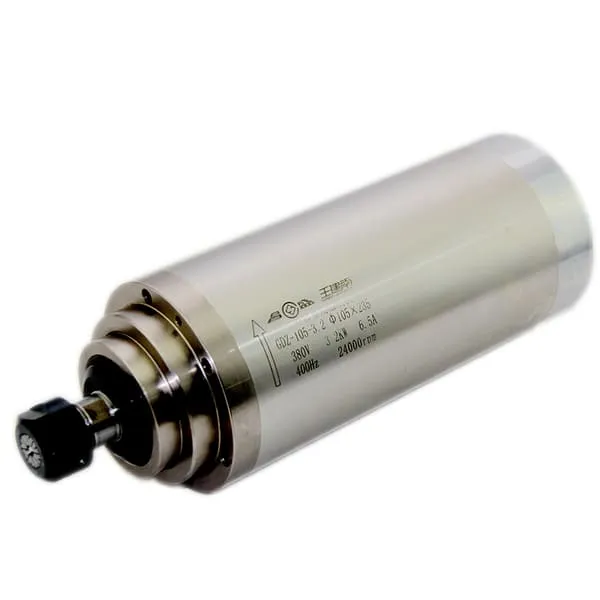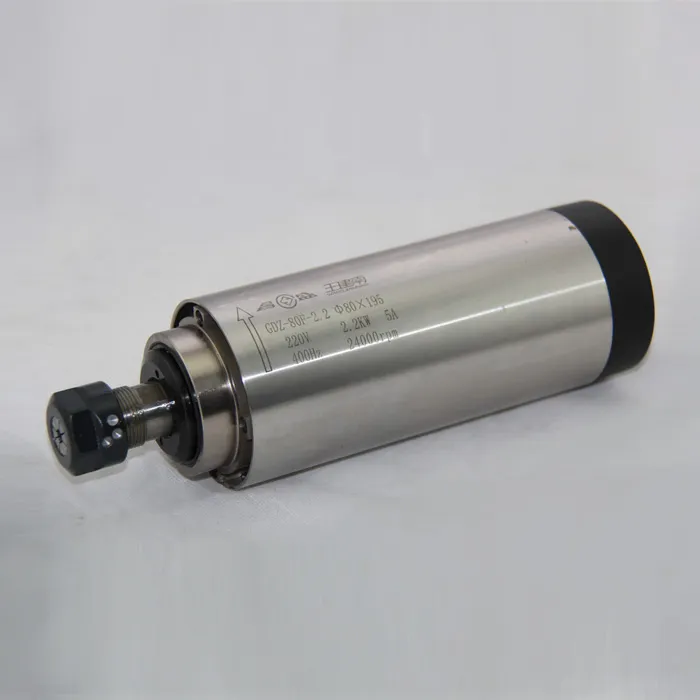When it comes to working with a CNC router, selecting the right router bits is crucial. The correct bits ensure that your cutting process is efficient, your material is handled properly, and your end product meets your desired specifications. If you’ve ever wondered, “What bits to use for a CNC router?”, this comprehensive guide will help you understand the different types of bits available, their applications, and how to make the best choice for your projects.
Understanding CNC Router Bits
What are CNC Router Bits?
CNC router bits are cutting tools that attach to a CNC machine to shape and cut materials such as wood, metal, acrylic, and plastic. These bits come in various shapes and sizes, each designed to handle different materials and cutting techniques. Choosing the right router bit for your CNC router depends on factors such as the material being cut, the type of cut desired, and the complexity of the design.
Why Choosing the Right Bit Matters
Choosing the correct CNC router bit is essential for maximizing cutting efficiency and reducing material waste. The right bit not only ensures smoother cuts but also helps prolong the life of your router and the bit itself.
Internal Link: For CNC machines and accessories, consider checking out our wide selection of CNC Spindle Motors.
Types of CNC Router Bits
1. Straight Flute Bits
Straight flute bits are one of the most commonly used CNC router bits, primarily for cutting wood and soft plastics. Their cutting edges are straight, making them suitable for creating grooves and dados. They are excellent for simple cuts and leave a smooth finish.
- Applications: Ideal for slotting, trimming, and cutting grooves.
- Material Compatibility: Best for softwoods, MDF, and plywood.
Advantages:
- Straight flute bits are excellent for reducing splintering.
- They provide a smooth finish without burning the material.
2. Spiral Flute Bits
Spiral flute bits are designed with helical cutting edges that provide a cleaner cut by shearing the material smoothly. They come in two main variants: upcut and downcut.
- Upcut Spiral Bits: The cutting action pulls material upward, which helps in efficient chip removal but may cause splintering at the top of the workpiece.
- Downcut Spiral Bits: These push the material down, leading to cleaner edges on the top surface. However, they are not as effective at clearing chips.
Internal Link: Improve your router setup with our 24000RPM 3.2KW ER20 Water-Cooled Router Spindle.

3. Ball Nose Bits
Ball nose bits have a rounded end that allows for detailed contour work, particularly in 3D carving applications. The round end makes them ideal for projects requiring complex curves or rounded edges.
- Applications: Ideal for 3D sculpting, contour milling, and engraving.
- Material Compatibility: Suitable for wood, plastic, and soft metals.
Advantages:
- Ball nose bits provide a smooth finish when creating intricate shapes.
- They are perfect for creating gradual transitions on surfaces.
4. V-Groove Bits
V-groove bits are used for engraving and sign-making. The cutting edge is shaped like a V, which allows for sharp and precise cuts that are perfect for lettering and decorative carving.
- Applications: Best for creating signs, lettering, and decorative grooves.
- Material Compatibility: Works well with wood, acrylic, and MDF.
Advantages:
- Provides a highly detailed finish for engraving tasks.
- Ideal for creating sharp corners and crisp edges.
Factors to Consider When Choosing a CNC Router Bit
1. Material Type
The material you are cutting plays a significant role in the selection of your router bit. Different bits are designed for different types of wood, plastic, and metal.
- Wood: For softwoods, straight and spiral flute bits work well. Hardwoods may require upcut spiral bits for efficient chip removal.
- Acrylic and Plastics: Use single flute or straight flute bits to prevent material from melting.
- Metals: For cutting soft metals like aluminum, single flute spiral bits are recommended for precision and to avoid overheating.
2. Cut Type
The type of cut you need—whether it’s a pocket cut, profile cut, or engraving—will influence the type of bit you select.
- Profile Cutting: Use straight flute or spiral flute bits to get sharp, clean edges.
- Pocket Cutting: Downcut spiral bits or ball nose bits can be used to create pockets with smooth finishes.
- Engraving: For engraving work, V-groove bits are ideal for detailed cuts.
Internal Link: Enhance the precision of your router operations with our 2.2KW ER20 Air-Cooled Spindle.

3. Bit Coatings and Heat Resistance
High temperature resistance is an essential factor to consider. Bits with special coatings, such as titanium nitride (TiN), provide better heat resistance and durability. Heat-resistant bits help maintain cutting efficiency and prolong tool life.
- Uncoated Carbide: Suitable for wood and plastic, but may wear out faster.
- TiN Coated Bits: Better suited for metal due to their enhanced heat resistance.
Special CNC Router Bits
1. Tapered Ball Nose Bits
Tapered ball nose bits are great for projects requiring depth and precision, particularly for detailed 3D work. The taper allows for more durable cuts, especially when working with dense materials.
- Applications: Often used for 3D carving and engraving.
- Material Compatibility: Suitable for both softwood and hardwood, as well as some plastics.
2. Single Flute Spiral Bits
Single flute spiral bits are typically used for acrylic and aluminum. The single flute design allows for efficient chip clearance, which reduces overheating and gives a clean cut without melting the material.
- Applications: Great for cutting acrylic, PVC, and soft metals.
- Advantages: The larger flute area provides better chip removal, making it ideal for softer materials that require clean, precise cuts.
Table: Comparison of CNC Router Bits
| Bit Type | Applications | Materials | Advantages |
|---|---|---|---|
| Straight Flute Bits | Slotting, Grooving | Softwood, MDF, Plywood | Smooth finish, reduced splintering |
| Spiral Flute Bits | Profiling, Cutting | Wood, Plastics, Soft Metals | Efficient chip removal |
| Ball Nose Bits | 3D Carving, Engraving | Wood, Plastic, Soft Metals | Smooth contour cuts |
| V-Groove Bits | Sign-Making, Lettering | Wood, Acrylic, MDF | Detailed engraving, crisp edges |
| Tapered Ball Nose Bits | 3D Carving, Deep Cuts | Hardwood, Plastic | Increased durability, precision |
| Single Flute Spiral Bits | Cutting Acrylic, Metals | Acrylic, Aluminum | Efficient chip removal, prevents melting |
FAQs
1. What is the best bit for cutting acrylic with a CNC router?
The best bit for cutting acrylic is a single flute spiral bit. It provides efficient chip clearance and prevents the acrylic from melting during the cutting process.
2. Can I use the same CNC router bit for wood and metal?
No, it is advisable to use different bits for wood and metal. Wood is better suited for spiral or straight flute bits, while metal requires single flute bits or bits with a specialized coating for heat resistance.
3. How do I select the right bit for engraving?
For engraving, V-groove bits are ideal. They allow for precise, detailed cuts and are perfect for intricate designs, lettering, and sign-making.
4. What type of bit should I use for deep cuts in hardwood?
Tapered ball nose bits are ideal for deep cuts in hardwood as they provide increased durability and can handle the density of harder materials.
5. What is the difference between upcut and downcut spiral bits?
Upcut spiral bits pull the chips upwards and help with effective chip removal, while downcut spiral bits push the chips downwards, giving a cleaner top surface but less efficient chip removal.
Conclusion
Selecting the right CNC router bit is crucial for the success of your projects. Whether you’re working with wood, metal, or plastic, the correct bit can make a significant difference in the quality of your final output. By understanding the different types of CNC router bits—such as spiral flute, ball nose, V-groove, and tapered ball nose bits—you can choose the best tool for each task, improving both efficiency and product quality. For all your CNC spindle and router needs, visit spindlemotorshop.com to explore a wide range of products tailored to enhance your projects.

